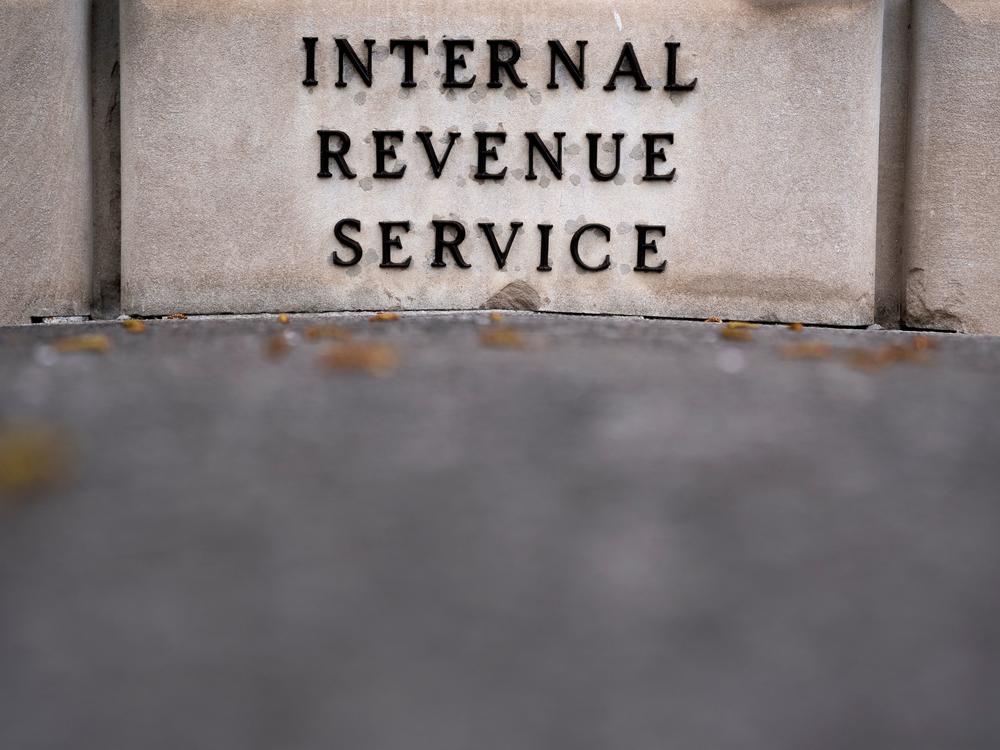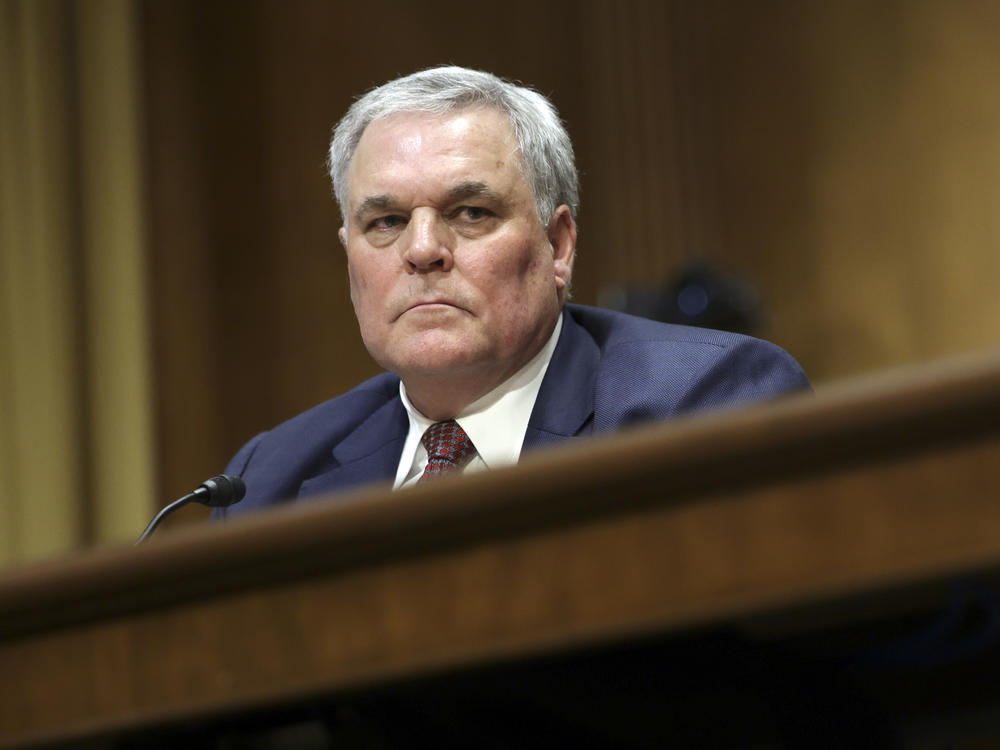Section Branding
Header Content
The IRS just got $80 billion to beef up. A big goal? Going after rich tax dodgers
Primary Content
The IRS is about to get a big infusion of cash.
As part of the massive climate and health care bill passed by the House on Friday, the tax collection agency is set to receive $80 billion over the next decade.
Some of that money will go to update decades-old computer systems at the Internal Revenue Service (IRS). And some is for improving customer service, including a taxpayer phone line where nine out of 10 calls go unanswered.
Most of the money, though, is for stepped-up enforcement — to help the IRS collect more of the estimated $600 billion in taxes that go unpaid every year, much of it owed by rich people who under-report their income.
"By beefing up the IRS's capacity to go after wealthy tax cheats, you're going to be able to collect at least $400 billion of that over the course of the next ten years, and I suspect substantially more," said Natasha Sarin, a counselor for tax policy and implementation at the Treasury Department.
But there is bitter opposition from Republicans. The IRS funding passed Congress along strict party lines, like the rest of the Inflation Reduction Act.
"Imagine IRS agents descending upon America like a swarm of locusts," Sen. Ted Cruz, R-Texas, warned in an interview with Fox Business. "And by the way, these IRS agents aren't there to go after billionaires. They're there to go after you. They're there to go after your small business. They're there to go after your family."
Both Treasury Secretary Janet Yellen and IRS Commissioner Charles Rettig – who was appointed by former President Trump – insist the additional enforcement efforts will target the wealthy, not middle-class taxpayers.
"Let's be very clear about what these resources are and are not doing," Sarin said. "These resources are not raising audits on any small business or any household that makes under $400,000 a year."
The IRS had lacked financial resources
The new money will help to reverse more than a decade of under-funding at the IRS. The agency's enforcement ranks have shrunk by 30% since 2010.
As experienced auditors have left, the IRS has increasingly focused on simpler audits involving lower-income families — even though they account for a small share of unpaid taxes.
Researchers at Syracuse University found that 46% of IRS audits in the most recent fiscal year were aimed at people who receive the Earned Income Tax Credit — a tax break designed to supplement the income of low-wage workers.
People who receive the tax credit were more than three times as likely to be audited as taxpayers overall, even though they account for a small share of unpaid taxes.
"They're easy marks," said Susan Long, who has been monitoring IRS audits for decades as co-founder of TRAC, a non-profit research center at Syracuse. "Enforcement levels have really dropped, except for these poor, lowest-income group where you can just send a letter in the mail."
Millionaires have largely avoided tax audits
At the same time, Long said, the IRS audited just 2.2% of millionaires' tax returns last year – a steep decline from 2015.
"Most millionaires, they don't even look at their returns, even though all the studies show that that's where the money is," Long said.
The vast majority of ordinary wage earners already pay the taxes they owe. They don't have much choice, since their income is reported directly to the IRS.
Wealthy people have more opportunities to avoid taxes. Their income sources are often less transparent. And they can hire lawyers and accountants to sidestep the IRS, which is frequently outgunned.
"This has been a David and Goliath battle for far too long," Sarin said. "We're finally giving the IRS the tools it needs to be able to meaningfully police [tax] evasion at the top of the [income] distribution."
Sarin argued that stepped-up enforcement will not only enable the IRS to collect more money for the government, but also make for a fairer tax system.
"This is about bringing to an end to a two-tiered tax system, where certain taxpayers have the opportunity to evade, and other taxpayers are making good on their obligations and are fully voluntarily compliant — which is the vast majority of taxpayers," she said.
Copyright 2022 NPR. To see more, visit https://www.npr.org.


